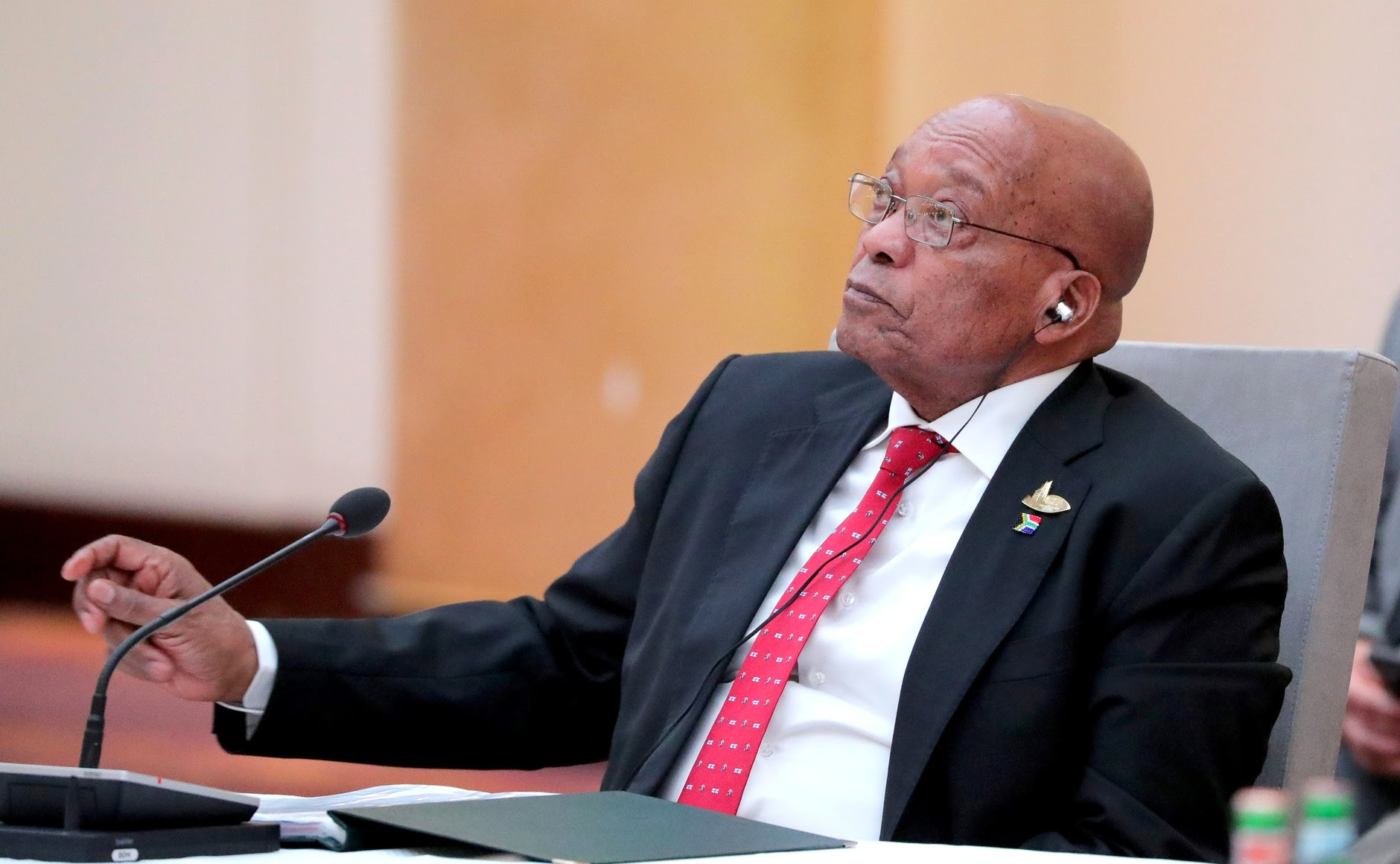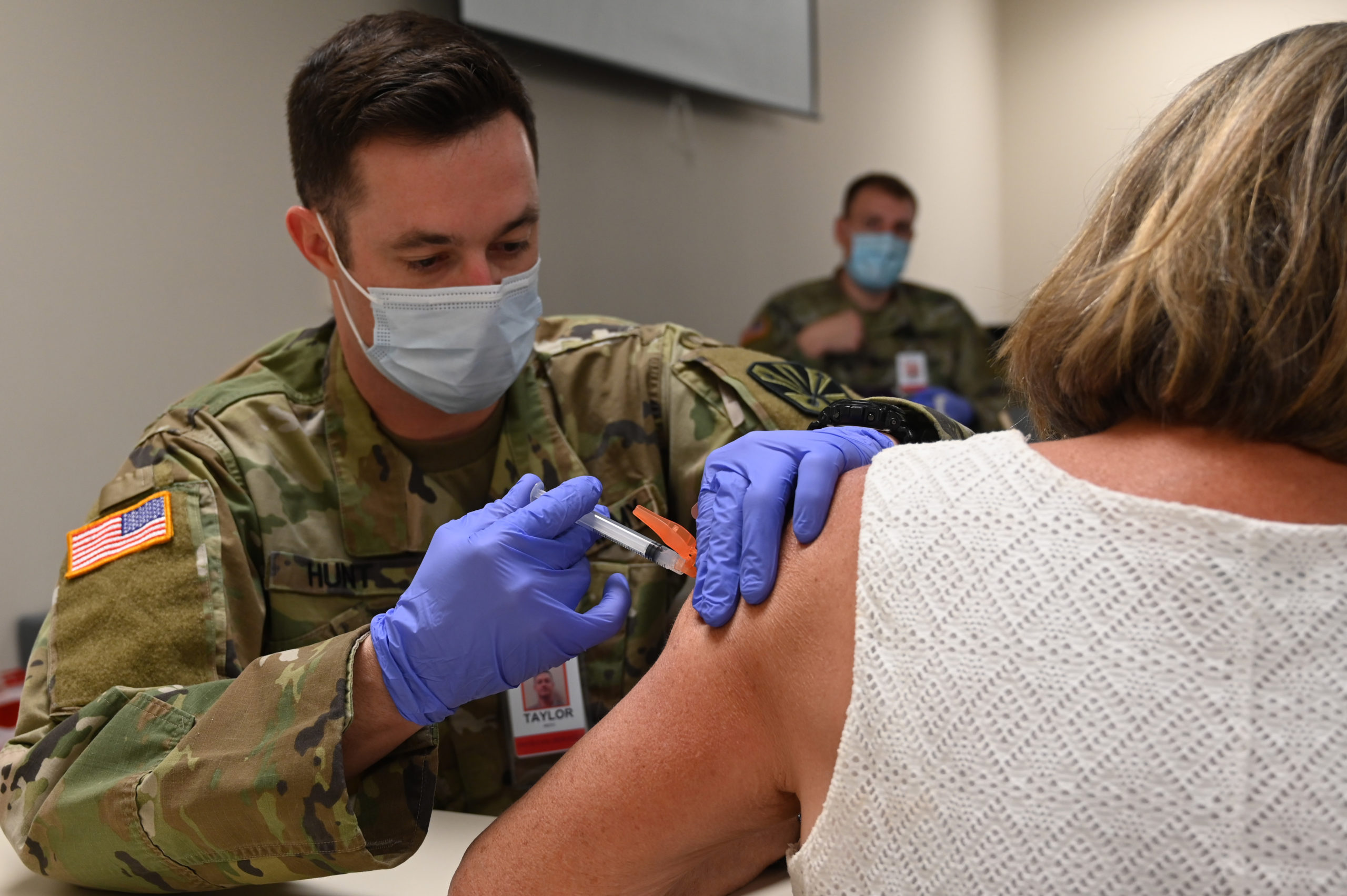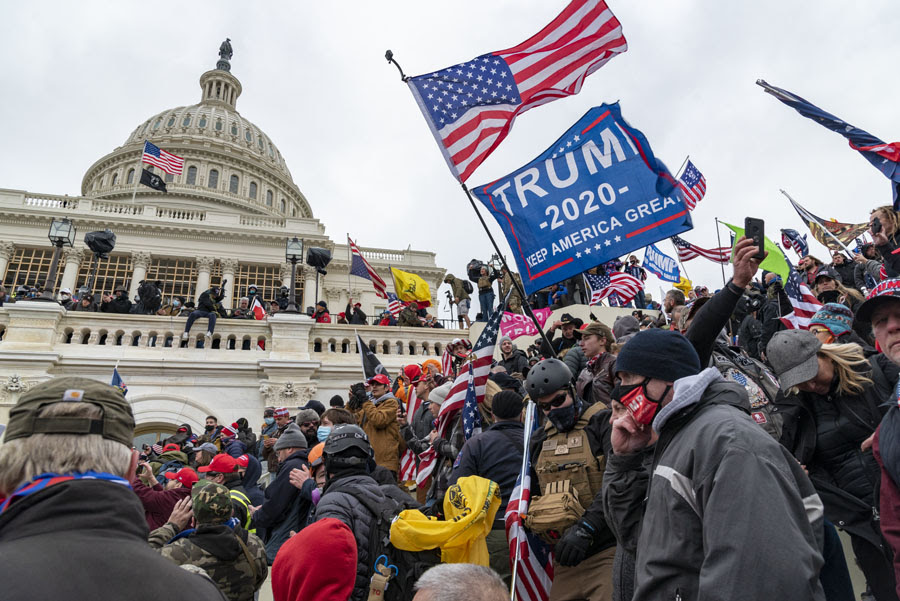Top photo: Pro-Trump rioters stormed the U.S. Capitol in Washington, D.C., on Jan. 6, 2021, as part of an effort to overturn the 2020 presidential election results. (Photo: Flickr/ Blink O’fanaye)
Welcome to Factal Forecast, a look at the week’s biggest stories and what they mean from the editors at Factal. We publish our forward-looking note each Thursday to help you get a jump-start on the week ahead. If you like what you see, you can subscribe for free.
A look ahead:
Sept. 17/ Russian legislative elections begin: Elections for Russia’s State Duma, its lower legislative body, begin on Friday and run through Sept. 19. Voters will also decide in regional elections, including ten gubernatorial races and 39 regional legislative elections.
- What’s happened so far: The State Duma elections will be the first since 2016, when United Russia, the political party of which President Vladimir Putin operates as the de-facto leader, took more than 54 percent of the vote to command 343 of the legislative body’s 450 seats. While elections are tightly controlled in Russia, analysts say State Duma elections have historically had less election fraud, leaving open the possibility for voters to rebuke the status quo, as they did in 2011 when United Russia nearly lost its majority.
- The impact: United Russia’s popularity appeared to be on the decline going into this year, with voters extremely displeased with the unpopular pension reform decision in 2018, persistent corruption and economic stagnation. However, the persistent crackdown on any united opposition front in Russian politics combined with general public apathy appears to show United Russia poised to once again avoid electoral disaster and retain a sizable majority, especially if turnout is as low as expected.
Sept. 18/ U.S. Capitol rally: Supporters of those jailed in connection to the Jan. 6 riot at the U.S. Capitol are expected to hold rallies across the United States on Saturday. The main rally is scheduled for noon on the Capitol’s West Lawn, while smaller rallies are expected in at least 16 states.
- What’s happened so far: Authorities are concerned about the “Justice For J6” rallies, particularly in Washington, D.C. Capitol police reinstalled security fencing around the Capitol building earlier this week in hopes of preventing a repeat of the January riot. Former FBI Director Andrew McCabe also urged caution, urging authorities to take the potential for violence “more seriously” than they did in the lead up to January’s unrest. Rally organizer Look Ahead America, created by former Trump campaign worker Matt Braynard, said the rally is “demanding justice” for those arrested and Ashli Babbit, the woman fatally shot while trying to breach a barricaded door at the Capitol. Still, Braynard has called for a peaceful protest.
- The impact: While rally organizers claim a “perfect safety record” at its previous events and say they only expect about 700 participants at the Capitol, it’s hard to overstate the implications of any violence should it occur. Police are already trying to discern if recent security incidents in the area are connected to the rally. Earlier this week, U.S. Capitol Police arrested a California man near the Democratic National Committee headquarters after finding he had multiple illegal bladed weapons in a pickup truck adorned with swastikas and other white supremacist symbols.

Sept. 20/ Canadian federal election: Voters across Canada’s 13 provinces and territories will go to the polls Monday in the country’s 2021 federal election, with Prime Minister Justin Trudeau and his Liberal Party of Canada seeking re-election as the largest bloc in the House of Commons.
- What happened so far: In August, Trudeau surprised the public by calling a snap election, telling voters he needed a fresh mandate to govern the country in order to implement his party’s plans to help Canada recover from the pandemic. Expecting to receive credit for his handling of the pandemic,Trudeau instead saw his poll numbers drop and now looks to be in a precarious position. Canadians have already voted in record numbers with some 5.8 million ballots cast in the four days of advance voting.
- The impact: Trudeau is seeking to regain a majority in this election after his party lost their parliamentary majority in the 2019 federal election. Polls show a tightening race in recent weeks, with the Conservative Party of Canada gaining ground amid a strong roster of smaller parties. New Democratic Party leader Jagmeet Singh’s popularity may also serve as a foil, peeling off voters from the Liberals. Trudeau’s hopes of an overall majority now look remote, with forecasts of a potentially reduced minority government or even a defeat on the horizon.
Sept. 20/ IAEA 65th General Conference: The International Atomic Energy Agency will meet in Vienna on Monday for its annual meeting, during which it will discuss North Korea.
- What’s happened so far: Since its founding in 1957, the IAEA has grown to take on many different roles. This year, the agency will take a hard look at nuclear proliferation in North Korea. IAEA inspectors were last in the country in December 2002, when they were ordered to leave. Last month, the IAEA announced the country apparently restarted operations at a power plant that could produce plutonium for nuclear weapons.
- The impact: During the General Conference, the IAEA director general will call on North Korea to comply fully with UN Security Council obligations. The agency is also expected to say it is ready to send inspectors back into North Korea. It’s unclear whether North Korea will respond. Kim Jong Un was reportedly willing to dismantle the nuclear site during the 2019 Hanoi summit with former President Donald Trump in exchange for lessened sanctions. Kim may be looking for leverage as a way to alleviate sanctions again after the country was hit hard by the pandemic.
Sept. 21/ UN General Assembly: The UN General Assembly will hold its General Debate in New York on Tuesday after its 76th annual session opened last week.
- What’s happened so far: Last year, the UN General Assembly’s 75th session was moved online with pre-recorded speeches because of the coronavirus pandemic. Despite these challenges, the UNGA passed more than 300 resolutions in 2020. This year, a hybrid approach will allow leaders to attend in person or by video, with many choosing to make a physical appearance.
- Impact: A particularly important topic this year will be which entities the UN recognizes as legitimate representatives of Myanmar and Afghanistan. No one has yet formally claimed Afghanistan’s seat, and Myanmar’s junta is challenging the current ambassador, backed by the ousted civilian government, for recognition. While the credentials committee participants are unlikely to reach definitive decisions, they may signal how they want to handle this quandary during the debate.

attended the G20 summit in Hamburg, Germany, in July 2017. (Photo: Kremlin)
Sept. 21/ Zuma corruption trial restarts: The hearing of former South African President Jacob Zuma over his involvement in a 1990s arms deal is set to continue Tuesday after the 79-year-old’s defense agreed to a 12-day postponement earlier this month.
- What’s happened so far: More than 330 people were killed in widespread violence sparked by Zuma’s 15-month imprisonment in July for refusing to appear at a separate corruption inquiry. Since then, the former president has been granted special leave from prison on medical grounds by the head of the country’s Correctional Services — also alleged to be a strong ally of Zuma. The former president, who is facing 16 counts of fraud, corruption, money laundering and racketeering, is now due to appear in court in person and will have to supply medical evidence if he is to seek a further delay in the hearing.
- The impact: Zuma will be following in the footsteps of other high-profile inmates if he is granted further medical parole, including his ally Schabir Shaik, who was granted special leave in 2009 from corruption charges on the basis that he was terminally ill. Shaik has survived to this day. Zuma, meanwhile, is also expected to ask for the case’s public prosecutor to recuse himself before the trial gets underway on the grounds that he is biased.
Sept. 22/ Polish hearing on primacy of EU law: Poland’s Constitutional Court will rule on whether the Polish Constitution or European Union law has primacy in the country Wednesday in a hearing that has been postponed four times.
- What’s happened so far: Earlier this year, Polish Prime Minister Mateusz Morawiecki asked the Constitutional Court to rule on whether the country’s constitution or EU treaties take precedence following a long-running dispute with the EU over changes to the court system in Poland. According to the Polish government, EU treaties do not give the bloc the right to interfere with the country’s judicial system. It comes after the European Commission warned Poland must comply with two decisions made by the European Court of Justice over its national disciplinary regime, or face financial sanctions.
- The impact: Should Poland’s top court give precedence to Polish law, the ruling could pose a threat to the EU’s legal order. European Values and Transparency Commissioner Vera Jourova warned it could lead to “Europe a la carte,” with each country applying the EU law differently. Some argue this legal procedure could hurt Poland’s long-term future in the EU, at a time when it relies on the EU to revive its economy following the coronavirus pandemic.
Sept. 23/ Norway to raise key interest rate: Norway’s central bank is set to increase its benchmark interest rate from a record low of zero percent Thursday, a move that would make it the first large western nation to raise the official cost of borrowing after the coronavirus pandemic.
- What happened so far: The Norges Bank hinted that its policy rate will be raised this month after holding it back in June. The bank noted that the country’s economy is recovering from the pandemic faster than expected as vaccination rates rise and restrictions are loosened. Health officials this week say infection numbers during Norway’s fourth coronavirus wave peaked around Sept. 6 and should have started declining.
- The impact: Observers say the expected rate hike shows Norway’s willingness to focus on a recovering economy despite rising coronavirus infections. While investors expect the rise, a confirmation from the Norges Bank signals a change as most central banks globally have slashed rates to record lows to prop up pandemic-hit economies. If the economy develops as expected, the bank may increase the rate three additional times by mid-2022.
Sept. 24/ Biden hosts “quad” summit: Australian President Scott Morrison, Indian Prime Minister Narendra Modi and Japanese Prime Minister Yoshihide Suga will visit President Joe Biden at the White House on Friday for the first in-person gathering of the four leaders from the Quadrilateral Security Dialogue.
- What’s happened so far: The quartet met virtually in March in what was Biden’s first multilateral leaders’ meeting since taking office, when they announced a plan to boost manufacturing capacity for coronavirus vaccines for the Indo-Pacific region and establish working groups on climate change and “emerging” technology. Those topics will be on the front-burner again this week, along with “promoting a free and open Indo-Pacific.”
- The impact: Since it was revived in 2017, the group has been viewed as a vessel to counter China’s military and diplomatic power, while U.S. officials have stressed the collaborative effort is not “about any single competitor.” In a recent op-ed, former U.S. Defense Secretary Jim Mattis argued that establishing the Quad as an effective entity, “could be Biden’s most important task in Asia.”

What else matters:
Biden vaccine rules: Last week, President Biden announced two new emergency measures in the fight against coronavirus: a vaccine mandate with no test out option for all federal employees and a new Labor Department rule that requires large employers to mandate vaccines or have workers undergo weekly testing. The latter rule, administered by OSHA, will apply to private companies with 100 or more employees, essentially impacting nearly 100 million workers throughout the United States. Federal workers who refuse to get vaccinated could lose their jobs, while companies that don’t comply with the rule could be fined approximately $14,000 per violation. Just more than 54 percent of all Americans are fully vaccinated, as of Sept. 14.
- Watch for: Some Republican governors and lawmakers are already challenging Biden’s directives. Nine states have already enacted laws banning mandates and Arizona’s attorney general announced plans to sue the Biden administration over the OSHA rule, arguing that it is unconstitutional to force citizens to receive the vaccine. Meanwhile, cases continue to rise, driven by the more infectious Delta variant and mostly in southern states with low vaccination rates. Many hospitals in these states are running out of ICU beds, exhausting oxygen supplies, and even rationing care. Goldman Sachs predicts Biden’s mandates could lead to at least 12 million more Americans getting the vaccine, which could dampen rising cases and deaths and spur economic recovery.
Guinea coup negotiations: Guinea’s military leaders are holding the first talks with political parties after they seized power and arrested President Alpha Condé earlier this month. The discussions are aimed at creating a transitional government, though it’s still unclear how much power the generals will cede to civilians.
- Watch for: At the forefront of politicians taking part is presidential candidate and former Prime Minister Cellou Dalein Diallo, who initially praised the coup as “a patriotic act.” The four-day conference kicked off in Conakry on Tuesday, with coup leader Lieutenant-Colonel Mamady Doumbouya warning participants “not to repeat the errors of the past.” Guinea’s 13 million citizens and neighbors who’ve watched mineral-rich West and Central Africa suffer three military coups in six months, are watching for possible establishment of a unity government, constitutional changes or a timeline to hold elections.
Extended outlook: What’s on our radar in the coming weeks
Sept. 16: Shanghai Cooperation Organisation summit in Tajikistan
Sept. 17: Israel health experts brief FDA on coronavirus booster shot
Sept. 18: Rallies planned in support of Jan. 6 detainees
Sept. 19: 73rd Primetime Emmy Awards; Russian legislative elections
Sept. 20: Canada snap election; U.S. to begin offering third coronavirus vaccine shots
Sept. 21: 76th UN General Assembly; South Africa’s Zuma corruption hearing
Sept. 22: Polish hearing on primacy of EU law
Sept. 23: Norway is set to raise key interest rate
Sept. 24: Biden hosts “quad” summit
Sept. 25: Icelandic parliamentary elections
Sept. 26: Haitian elections; German federal elections
Sept. 28: North Korea to convene meeting of legislature; U.S. Senate Armed Services committee hearing on U.S. withdrawal from Afghanistan
Sept. 29: Japan’s ruling Liberal Democratic Party elections
Oct. 1: Expo 2020 Dubai begins
Oct. 2: Women’s March for reproductive rights
Oct. 5: Soyuz MS-19 mission launch
Oct. 6: UEFA Nations League Finals in Milan and Turin, Italy
Oct. 8: 2021 Nobel Peace Prize winner announced; Czech parliamentary elections

